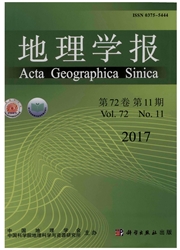

 中文摘要:
中文摘要:
慢活的空间体验与追寻是人们对当代社会“束缚与压抑”的抵抗和逃避,其为特定区域的地方性理论研究提供了鲜活的实证案例。本文以丽江古城为研究案例地,基于对原住民、外来经营者、旅游者和政府管理人员的访谈资料,同时以网络日志为分析文本,在构建地方性呈现与形成分析框架的基础上,从外部认同的角度对丽江慢活地方性特质呈现及其形成机制进行了探讨。研究发现:丽江古城慢活地方性的具体维度可由区位、场所、地方感加以呈现,其中,区位包括比较区位与现实区位,场所包括外部环境、内部空间与社交活动,地方感则包括情感与延续行为。丽江古城慢活的地方性形成来源于多元主体的共同建构,其中,原住民经由历史及文化积淀而形成的慢活理念是丽江古城慢活的精神本底,这种地方性特质被外来经营者加以营造和推广,使慢活特质得以强化并成为地方性表征,这同时满足了旅游者的需求,在旅游者的认同助推下更为显化,三个主体的共同作用使慢活特质成为丽江古城不可或缺的地方性构成。此外,本文还对旅游场域下地方性的特殊性与不同范式下的地方性形成机制进行了探讨。
 英文摘要:
英文摘要:
Recently, people start to seek and experience space of slow living to resist and escape from the "constraint and pressure" caused by modern society. This becomes evident in some particular areas and provides empirical cases to extend the placeness theory. By selecting the Old Town of Lijiang as a case study, this research aims primarily to explore the manifestation and formation mechanism of the placeness feature of Lijiang from multiple identities. The data used in this study were collected through interviews of natives, non-native operators, tourists and government officials, and content analyses of web-blogs. The results show that, location, locale and sense of place, jointly build up the dimensions of identity with placeness of slow living in the Old Town of Lijiang. To be more specific, location includes relative location and absolute location; locale comprises external environment, internal space and social activity; and sense of place consists of two dimensions of affection and continued behavior. This study has indicated that identity with placeness of slow living in Lijiang is established by multiple subjects. Natives' slow living philosophy, which has formed on the basis of their history and culture, is the foundation of the lifestyle in the Old Town of Lijiang; non-native operators popularize the placeness feature and reinforce it to be a place character; at the same time such place character can satisfy tourists' needs and it is further promoted due to tourists' identity with the Old Town. Therefore, the combined effect of these three subjects has made slow living an indispensable feature of placeness in Lijiang. In addition, the paper has demonstrated the unique features in the touristic place, as well as the formation mechanism of identity with placeness under different paradigms.
 同期刊论文项目
同期刊论文项目
 同项目期刊论文
同项目期刊论文
 Subjectivity, modernity and the politics of difference in a peri-urban village in China: towards a p
Subjectivity, modernity and the politics of difference in a peri-urban village in China: towards a p Chinese urban migrants’ sense of place: Emotional attachment, identity formation, and place dependen
Chinese urban migrants’ sense of place: Emotional attachment, identity formation, and place dependen Charting the development of social and cultural geography in Mainland China: voices from the inside(
Charting the development of social and cultural geography in Mainland China: voices from the inside( Between God and Caesar? Christianity, ethnic identity and the resistant politics in Shimenkan, China
Between God and Caesar? Christianity, ethnic identity and the resistant politics in Shimenkan, China 期刊信息
期刊信息
